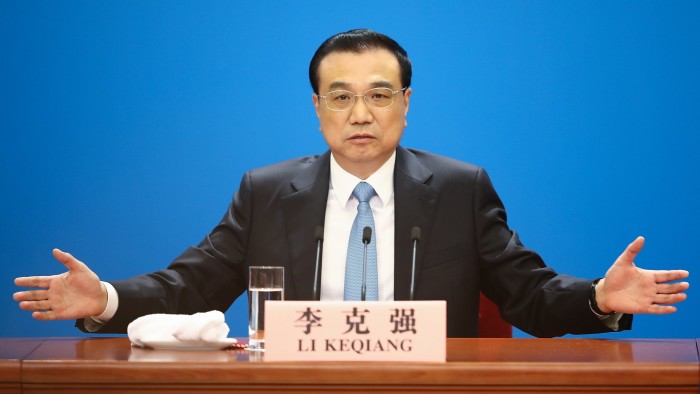Stay informed with free updates
Simply sign up to the Chinese economy myFT Digest — delivered directly to your inbox.
The writer is an independent commercial arbitrator with Arbitration Chambers in Hong Kong
China’s official statistics, particularly its annual GDP figures, have long been the subject of scrutiny. In 2007, Li Keqiang, later the premier, remarked that they were unreliable and that he relied on three alternative indicators to evaluate economic performance: railway cargo volume, electricity consumption and bank lending. These metrics came to be known as the “Keqiang Index”.
Many observers suspect that GDP figures in the past few years have been inflated. Local officials tend to view meeting regional targets as necessary not only to keep their jobs but also to secure promotions. This atmosphere of distrust intensified in August 2021 when China’s internet tsar prohibited any social media publications that could “distort” macroeconomic data. Such restrictions have silenced comments from leading economists in China, and several banks and research institutions have become reluctant to publish forecasts which fall below official figures. In some cases, economists have been told to refrain from critiquing official data.
The government’s attempts to suppress negative commentary may stem from concern over the long-term effect of stringent economic controls imposed during the Covid-19 years, which saw investor and consumer confidence decline to what was then an all-time low. This has had a perverse effect: in private conversations, jokes about GDP figures are more widespread than ever.
Publicly available, reliable, up-to-date data allows investors to monitor developments and manage their expectations. If fundamental statistics such as GDP, consumption index and unemployment rates lose their credibility, investors will be forced to prepare for the worst-case scenario. In 2023, China’s National Bureau of Statistics stopped publishing youth unemployment data after figures reached a record high for several consecutive months. The government later resumed the release but excluded students from the count, claiming that this offered a more accurate representation.
In December 2023, China’s Ministry of State Security warned key commentators on social media to stop criticising the economy and spreading what it alleges to be disinformation. Last month, Zhu Hengpeng, a leading economist at a top government think-tank, reportedly disappeared after making disparaging remarks about the economy in a private WeChat group.
These troubling developments have intensified scepticism about China’s economic reality, creating what could be described as a Tacitus Trap. Named after the Roman historian, this theory posits that when public trust in government erodes, citizens will assume that all information released by government — regardless of its truth — may be false. Some netizens even joke that China owes its recent economic success to the National Bureau of Statistics, the Central Propaganda Department and the Internet Information Office.
This new status quo is neither sustainable nor conducive to long-term growth, as information distortions create a feedback loop which undermines development. One misleading figure may need to be followed by others to preserve the narrative, setting the scene for a self-perpetuating cycle of misinformation.
China has experienced remarkable growth since its accession to the WTO in 2001. Transparency, the rule of law, and objective economic analysis have all been instrumental in enabling the business community to make informed decisions. Given the current size of its economy, a GDP growth rate which falls short of the 5 per cent target should no longer be considered taboo. While some adjustments to economic figures are understandable, excessive exaggeration should not be supported. Open and critical analysis by experts should not only be permitted but encouraged in order to support sustainable economic development.
Source link









